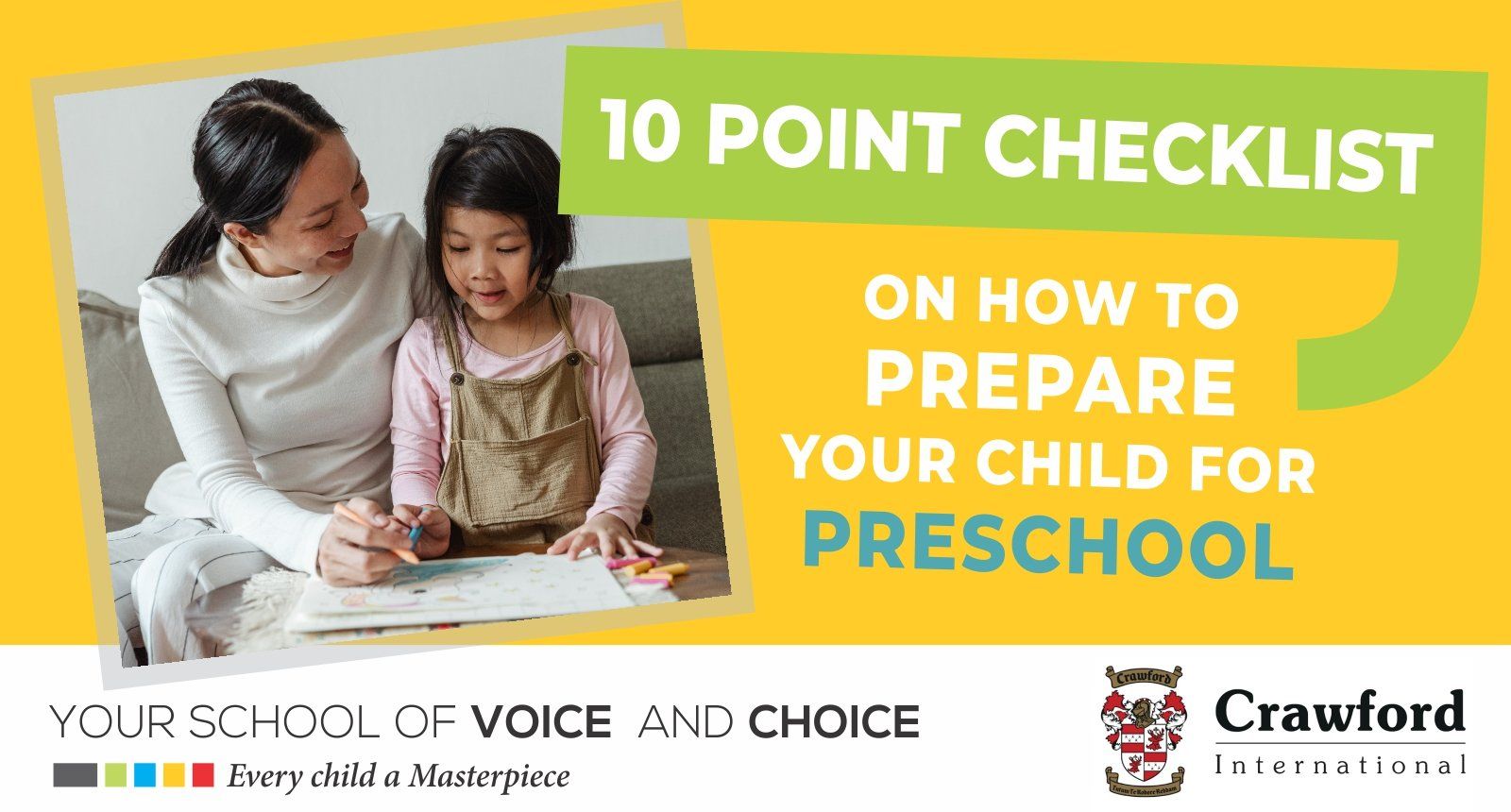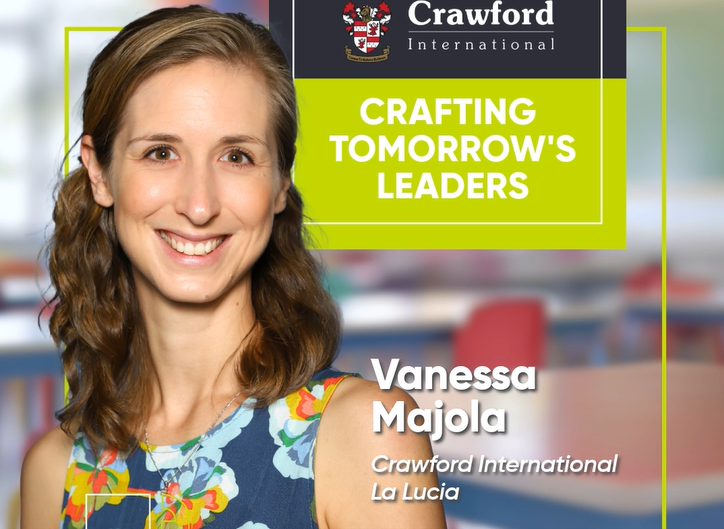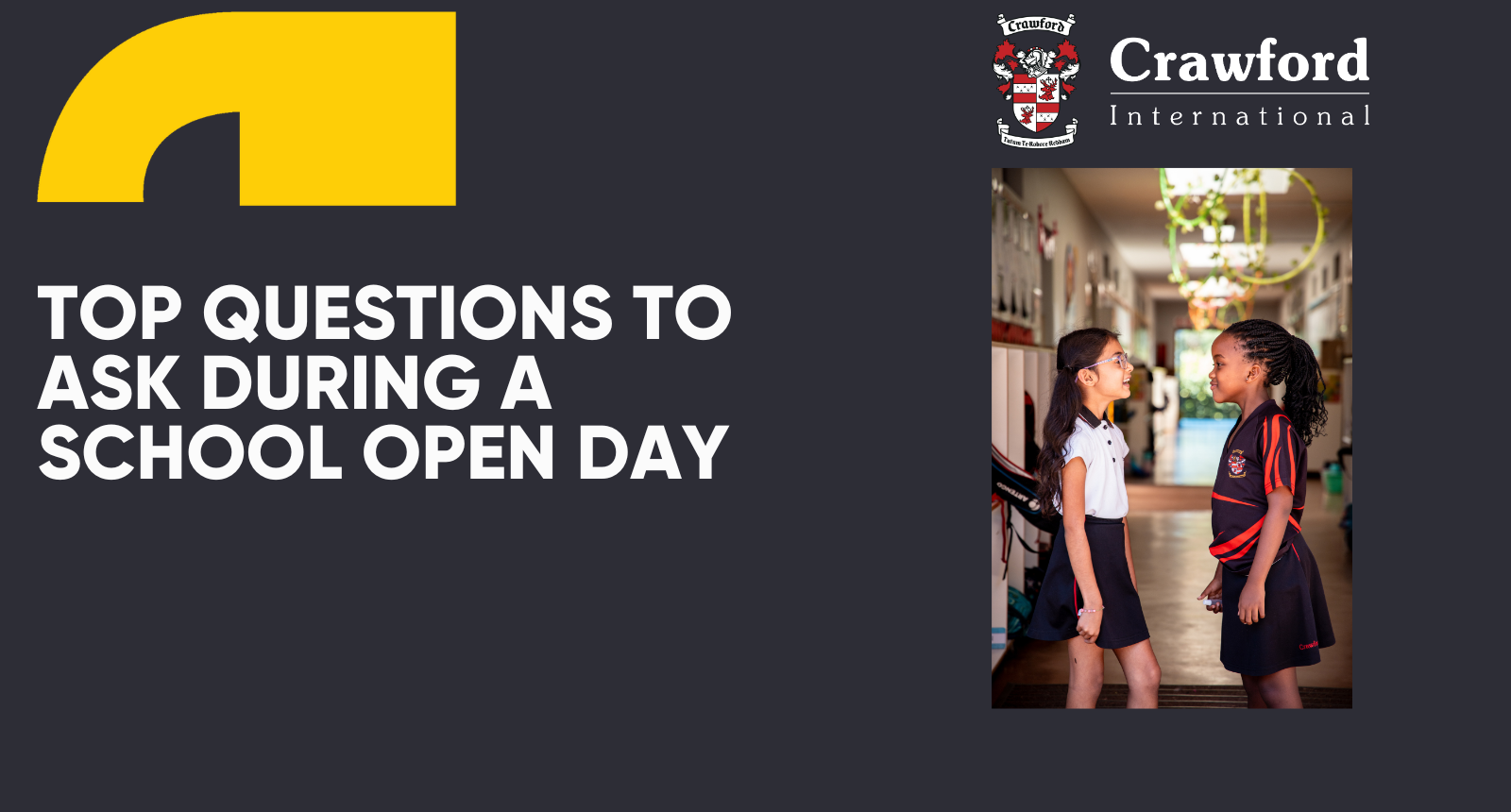10-Point Checklist: Getting Ready for Preschool
Kerryn Massyn • January 28, 2022
Preparing for preschool to calm those nerves and curb those tears.

We’ve put together a ‘getting ready for preschool checklist’ to calm those nerves and curb those tears.
As with many things in life, preparation is the key to success when it comes to getting ready for preschool. So, to help you both prepare for this big step, we have put together a preschool preparation checklist detailing 10 ways to make the transition one of confidence and growth.
Learn how Crawford approaches preschool learning through meaningful play.
1. Get a sneak peek.
Try to drive past the preschool daily, starting a couple of weeks before school begins. Point out the gate, class, or playground. As you prepare for preschool, this will help form some familiarity with the new setting. If you know of any other children who are starting school, try setting up a few playdates ahead of time.
2. Get organised.
Try to involve your child as much as possible in getting all the various bits and pieces needed. So, get them to help you choose a backpack, shoes, lunchbox, water bottles, hat, etc. You might not be thrilled by all their picks but having something they love helps them feel more comfortable with the transition as you prepare for preschool. Then, remember to label absolutely everything – a lost sock is more common than anyone would wish!
3. Shift your routine.
A few weeks before school starts, start gradually making any necessary changes to your child’s routine around mealtimes and nap times to get ready for preschool. You may also want to consider an earlier bedtime and waking time. The idea here is to get things as close as possible to how routines will work when school starts so that things are more consistent and predictable throughout the transition. Keep things the same through school holidays and weekends too.
4. Read about it.
Reading is a great way to introduce big concepts to young children. So, as you prepare for preschool, read stories about going to school with your child. Talk through scenarios in the book, the feelings of the characters, and how the stories may be mirroring what your child is going through.
5. Talk about it.
Being able to chat about things in a relaxed, calm setting helps children feel a bit more in control of things, which in turn helps that ‘getting ready for preschool’ anxiety. Talk about things your child will be doing at preschool, or about some of the things that will be different from home (like the toilets and playground) – but don’t push things.
If your child doesn’t seem interested, or you notice anxiety building, let it go. You could also try playing school – take turns being parent, child, and teacher, and act out daily routines like saying goodbye, story-time, etc. The goal is to assure your child that they will be in a safe place where they will be having fun and learning.
6. Spend time apart.
Making the transition could be easier on your child if you have spent regular time away from them. So, as you prepare for preschool, lean on the help of grandparents, relatives, and friends to get them used to the idea of not being with you.
7. Create a special goodbye.
How a parent treats the morning goodbye goes a long way to help a child start their school day with confidence. In the lead-up to getting ready for preschool, come up with a special goodbye ritual together that you do every day. This can be a kiss in the palm of the hand that they can “hold onto all day long”, or a special handshake.
Whatever helps create familiarity and shows your child you love them. Then, when it comes to drop-off time, try not to linger and keep things positive. Do your special goodbye, tell your child you’ll be seeing them later, and then leave. Tears are to be expected for one to three weeks as your little one settles down, but most children settle down soon as the day starts.
8. Talk to the teachers.
Knowing you have a trusting relationship with their new caregivers gives a child confidence amidst all the newness, so open communication between you and the teachers is key. You’ll also feel more settled in knowing you can share all relevant information with your child’s school, so as you’re getting ready for preschool try to schedule a chat with the teacher or principal to establish communication channels.
9. Encourage independence.
Try to help your child get a handle on doing things for themselves throughout your preschool preparation, such as washing hands (or using hand sanitizer), cleaning up toys, feeding themselves, even putting on shoes. Being able to do things for themselves – rather than relying on a grownup for everything – can help your child feel more confident and settled.
10. Prepare yourself.
It’s not only your little one who is getting ready for preschool – this is a big transition for you too. Remember that your child takes their cues on how to be and do in this big world from you. So, while there is some sadness in seeing your baby growing up into an independent child, hold on to the excitement and wonder of this moment.
Show your child how to work through feelings of anxiety as you both prepare for preschool, and focus on the fun, learning, and exciting experiences that are to be had.
Read more about how to prepare your little one with more advice from Crawford International here.












